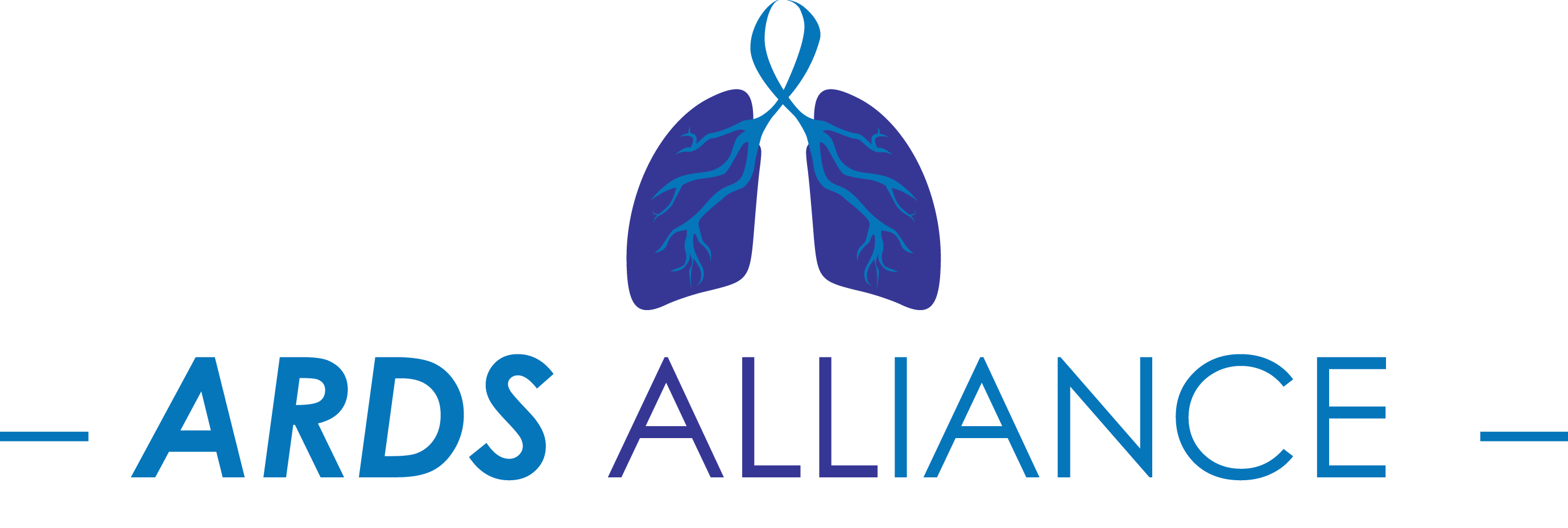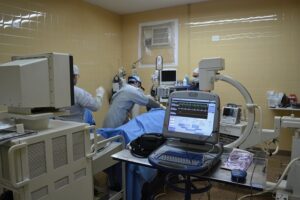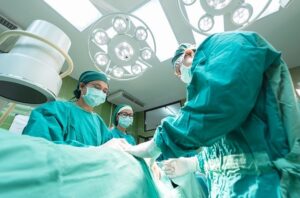How Prone Positioning Affects ARDS Recovery in ICU Patients
How Prone Positioning Affects ARDS Recovery in ICU Patients
Acute Respiratory Distress Syndrome (ARDS) is a severe lung condition characterized by rapid onset of widespread inflammation in the lungs, leading to decreased oxygenation and respiratory failure. Understanding ARDS is crucial for patients and their families, especially given its life-threatening nature. One of the most effective supportive treatments for ARDS is prone positioning—placing a patient on their belly instead of their back—which has been increasingly adopted in intensive care units (ICUs). This article aims to delve into the role of prone positioning in improving oxygenation and recovery outcomes for ARDS patients, helping them and their loved ones navigate this challenging experience.
Understanding ARDS
ARDS can result from various causes, including pneumonia, sepsis, trauma, and aspiration. The condition creates a situation of inadequate gas exchange in the lungs, leading to low oxygen levels in the blood. ARDS is classified into three categories (mild, moderate, and severe) based on the degree of hypoxemia and other clinical parameters. This high level of variability means that treatment and management strategies must be tailored to the individual patient.
Specifically, in ARDS, the alveoli—the tiny air sacs in the lungs where gas exchange occurs—become inflamed and filled with fluid. This fluid build-up can severely impair lung function and, consequently, the body’s oxygen supply. Understanding the mechanics of the lung in the context of ARDS is vital for grasping the importance of interventions like prone positioning.
- ARDS causes significant impairments in gas exchange.
- Fluid accumulation in alveoli leads to hypoxemia.
- Individualized treatment is crucial for effective management.
The Concept of Prone Positioning
Prone positioning involves rotating a patient onto their abdomen to facilitate better respiratory mechanics and enhance oxygenation. The rationale behind this technique lies in the anatomical and physiological benefits it provides. When a patient is lying on their back, gravity can cause the lung tissues at the back to collapse. Conversely, prone positioning helps to recruit collapsed lung tissue, improve ventilation-perfusion matching, and enhance blood flow. These adjustments can lead to increased oxygenation and decreased work of breathing.
Research has shown that prone positioning can result in considerable improvements in arterial oxygenation levels. It can also reduce the duration of mechanical ventilation, decrease the risk of ventilator-associated pneumonia, and improve survival rates in patients with severe ARDS. While prone positioning is not universally effective for every patient, it has been shown to benefit many undergoing treatment in the ICU.
- Prone positioning promotes lung recruitment and improved oxygenation.
- It enhances ventilation-perfusion matching in the lungs.
- Research supports its role in reducing mechanical ventilation duration.
Mechanisms of Benefit from Prone Positioning
The benefits of prone positioning can be attributed to several mechanisms. First, it redistributes perfusion (blood flow) in the lungs, lowering the areas of pulmonary shunting, where blood passes through the lungs without participating in gas exchange. Second, this position can lead to improved drainage of secretions, thereby reducing the risk of ventilator-associated pneumonia. Additionally, prone positioning can decrease the compression of lung tissues by the heart and diaphragm, allowing for better lung expansion and more effective use of the ventilator.
Furthermore, the prone position might decrease the risk of ventilator-induced lung injury (VILI). In this context, VILI refers to the lung damage caused by mechanical ventilation, which can result from excessive pressure and volumes delivered to the alveoli. By alleviating pressure on the lungs, prone positioning can mitigate some of the risks associated with mechanical ventilation.
- Prone positioning reduces pulmonary shunting, improving gas exchange.
- It enhances drainage of secretions, lowering pneumonia risk.
- This position decreases compression from the heart and diaphragm for better lung expansion.
- Reduces risk of ventilator-induced lung injury (VILI).
Clinical Applications and Protocols
Prone positioning is generally employed in patients experiencing severe ARDS, especially when conventional ventilation strategies are insufficient. The clinical team typically follows established protocols to ensure safe and effective transition to and from the prone position. For instance, patients are often transitioned to prone positioning for 12-16 hours at a time, depending on their tolerance and oxygenation levels.
Before implementing prone positioning, the medical team carries out thorough assessments to ensure it is appropriate for the patient’s condition. Continuous monitoring of respiratory and hemodynamic status is essential while the patient is in the prone position. Physical therapists and nurses also play crucial roles in safely repositioning the patient, minimizing the risk of complications such as pressure ulcers and nerve injuries.
- Prone positioning is typically reserved for severe ARDS cases.
- Protocols involve frequent monitoring during positioning transitions.
- Physical therapists and nurses ensure patient safety during repositioning.
Potential Risks and Complications
While the benefits of prone positioning are significant, it is not devoid of risks. Potential complications can include facial edema, pressure injuries, and nerve injuries, especially related to the positioning of limbs. Patients with certain conditions, such as spinal instability or significant recent surgeries, may not tolerate contraindications to being placed prone. Therefore, careful evaluation is necessary before implementing this positioning strategy.
Awareness of these potential complications should encourage family members and caregivers to advocate for close monitoring and regular assessments of the patient while in the prone position. Open communication with the healthcare team can be beneficial in addressing concerns and ensuring that the patient receives optimal care at all times.
- Risks include facial edema, pressure injuries, and nerve injuries.
- Contraindications may exist based on individual health status.
- Close monitoring and communication with healthcare professionals are essential.
Effectiveness of Prone Positioning in Research
Numerous studies support the effectiveness of prone positioning in improving outcomes for ARDS patients. One landmark study published in the New England Journal of Medicine demonstrated that early prone positioning could significantly reduce mortality risk in patients with severe ARDS. This finding has forged its acceptance as a cornerstone of evidence-based practice in modern critical care settings.
Continued research is crucial to refine protocols and identify which patient populations benefit most from prone positioning. Currently, ongoing clinical trials are exploring different timing, duration, and frequency of prone positioning to optimize treatment for ARDS patients. It is important for patients and their families to stay informed about the latest developments in this area:
- Research indicates mortality reduction in severe ARDS patients with early prone positioning.
- Ongoing studies focus on timing, duration, and frequency of positioning.
- Staying informed on emerging research can empower patient advocacy.
Patient and Family Involvement
For patients and families, understanding the rationale and benefits of prone positioning can alleviate some anxiety associated with ARDS treatment. Family members are encouraged to engage with the healthcare team to gain insights into their loved one’s condition, treatment plan, and the potential for prone positioning to aid recovery. Communication can empower families to navigate this challenging time and foster trust in the medical team.
Moreover, families can advocate for patient-centered care by asking questions, expressing concerns, and participating in daily rounds. Encouraging open dialogue encourages a more supportive environment that can help improve both patient outcomes and family experiences.
- Understand the rationale behind prone positioning to reduce anxiety.
- Engage actively with healthcare providers about treatment plans.
- Encourage family participation in rounds and discussions.
Frequently Asked Questions
1. What is the optimal duration for prone positioning in ARDS patients?
The optimal duration can vary but is generally recommended for 12-16 hours at a time, based on patient tolerance and oxygenation levels. Some studies suggest longer durations may offer additional benefits.
2. Are there any contraindications for prone positioning?
Yes, contraindications may include spinal instability, recent thoracic surgery, or other medical conditions that pose a risk when placed in a prone position. Medical teams will evaluate individual patients accordingly.
3. How can I track my loved one’s progress while in the ICU?
It is important to maintain open lines of communication with the healthcare team. Regular updates, daily rounds, and discussions regarding care plans and therapies can help you stay informed.
Conclusion
The use of prone positioning in ARDS patients represents a significant advancement in critical care medicine. By improving oxygenation and enhancing ventilation, this simple yet effective intervention can lead to better outcomes and shorter recovery times for affected individuals. While prone positioning is not a magic bullet, understanding its complexities and benefits can empower patients and families facing the McD’s of ARDS. Open dialogue with healthcare teams, mindfulness of potential risks, and engagement in the patient’s care journey can make this challenging chapter a little easier.
- Prone positioning enhances recovery opportunities for ARDS patients.
- Understanding its implications is essential for patient and family empowerment.
- Keeping communication open leads to better decision-making in the ICU.
For further reading and more in-depth information, you may refer to the following resources:
About ARDS and Post-ARDS
ARDS (Acute Respiratory Distress Syndrome) is a life-threatening condition typically treated in an Intensive Care Unit (ICU). While ARDS itself is addressed during the ICU stay, recovery doesn’t end with discharge; patients then embark on a journey of healing from the effects of having had ARDS.
Disclaimer
The information provided in ARDS Alliance articles is for general informational and educational purposes only and is not a substitute for professional medical advice, diagnosis, or treatment. While we strive to present accurate, current information, the field of Acute Respiratory Distress Syndrome (ARDS) and related healthcare practices evolve rapidly, and ARDS Alliance makes no guarantee regarding the completeness, reliability, or suitability of the content.
Always seek the advice of qualified healthcare professionals with any questions you may have regarding a medical condition. Never disregard professional medical advice or delay seeking it because of information you read in ARDS Alliance articles. ARDS Alliance, its authors, contributors, and partners are not liable for any decision made or action taken based on the information provided in these articles.
About ARDS Alliance
Our mission is to improve the quality of life for ALL those affected by ARDS.
The ARDS Alliance is a non-profit committed to raising awareness and enhancing the understanding of Acute Respiratory Distress Syndrome (ARDS), a severe lung condition often occurring in critically ill patients. Through developing alliances, it unites various organizations and experts striving to improve care and support research aimed at finding more effective treatments. Their efforts include educating the public and healthcare providers about ARDS symptoms, risk factors, and advancements in treatment, ensuring better patient outcomes and resource availability.

I am dedicated to advancing research and education about Acute Respiratory Distress Syndrome. Our mission is to improve outcomes for patients and their families by providing support and resources for healthcare professionals. Together, we can make a difference in the lives of those affected by ARDS.
~ Paula Blonski
President, ARDS Alliance





